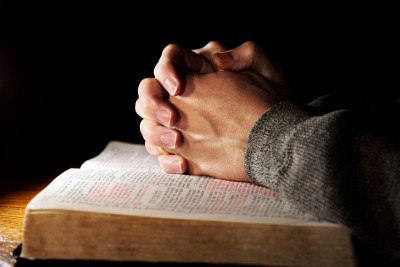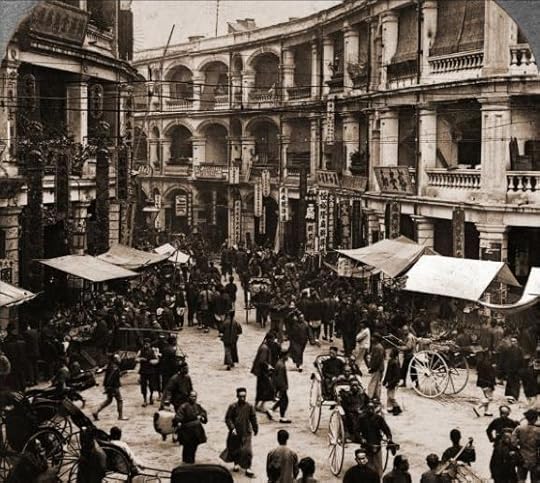Why I Read Missionary Biographies
I like missionary biographies. I’m admittedly biased since I am a missionary. I’ve read dozens upon dozens over the years. I’ve got shelves full of them that are waiting to be read. I collect them, old and new. I probably have more than I’ll be able to consume.
Yes, its an addiction. But a good one.
As a called and determined novice on the mission field some 17 years ago I had a realization. There are a lot of folks who’ve done this before. Surely they have something to teach me. So I started reading. The earliest one I remember was Hudson Taylor’ Spiritual Secret. That was followed closely by the condensed autobiography of John Paton.
I was hooked. And since then, I’ve given those two books to many others. They’ve served to whet their desire for the mission field as well.
Missionaries are a rare breed. By the very nature of their calling they’re individualistic, focused, able to endure hardship and self-sacrificing. At least, that’s what they used to be. And those are the examples that were held up before me.
The term “missionary” doesn’t mean what it once did. With the advent and subsequent explosion of short-term mission trips, the definition has changed. “Oh, how great that you’re a missionary! My granddaughter is too. She goes to Mexico for one week every summer,” is typical of numerous conversations I’ve had.
Going overseas to do occasional mission work is commendable. I don’t mean to belittle the experience. But taking short term trips doesn’t make someone a missionary. It makes them a temporary helper of a missionary.
Reading missionary biographies, particularly older ones, would clear this misunderstanding right up. The experiences and sacrifices and suffering of former missionaries should cause most of us to tread lightly when it comes to assuming the title.
So here’s seven reasons why I read missionary biographies
1) They remind me of the need for a strong devotional life.
What makes a man or woman of God?
What he or she does in secret.
I began noticing a pattern in the lives of missionaries by reading their biographies. They all had strong and habitual times of prayer and Bible study.
Most of them arose early to do so. On the mission field “early” means somewhere around three or four o’clock in the morning. The typical missionary hit the ground sprinting as demands on their time began at sunrise and didn’t subside until after dark.
Living in remote and primitive locations, many missionaries not only had full-time ministry obligations but they also had to simply survive. And the latter in and of itself easily ate up half of their time.
Where do you find the spiritual, mental and physical stamina for such a life? You find it in the Lord. You find it on your knees with His Word open before you. When a Christian’s witness and effectiveness begin to falter, the root cause is nearly always a neglect of the devotional life.
And what was good for the missionary is good for us all!

2) They remind me of the importance of memorizing Scripture.
This was another pattern I noticed. These folks memorized a lot of Scripture. Many missionaries of yesteryear had the advantage of growing up in churches that still emphasized Bible memorization. But regardless of whether they started young or a bit older, they put time into doing it.
They understood that God’s Word is their sword. They knew the importance of hiding the Word in their heart. They filled their quivers with the promises of God. When the needs arose, they had quick access to the right promise to claim.
They shared the gospel and preached in myriad and difficult settings. They never lacked for a word in season, or a theme upon which to expound. The Word buoyed them in their dark days, encouraged them in their fruitless seasons, and comforted them in their distress.
We would all do well to exercise such discipline and dedication in memorizing Scripture.
3) They spur me on to suffer for righteousness’ sake.
The reality is any “suffering” I’ve undergone is fairly tame compared to many of these folks. The examples we have in missionary biographies are of men and women who demonstrated what it truly looks like to count the cost.
They forsook homes, family, friends, and even fiancés in order to pursue the call. They suffered hunger, thirst and imprisonment. They were kidnapped for ransom, threatened by spear-welding natives, and pursued by cannibals.
They buried children, wives, husbands, and fellow workers. They spent their lives in strange and foreign lands, wore themselves out physically, and in some cases, made the ultimate sacrifice.
Yeah, they knew what it meant to suffer. They did not consider their lives as dear to themselves. They did it for the gospel. They did it for Jesus.
4) They remind me that God’s will is all that matters.
This is a tough one. Especially in the narcissistic, entitled, and selfie-obsessed age that we live. The missionaries that I’ve read about took literally the command to “go therefore and make disciples of all the nations.” They didn’t try to rationalize it or make the Lord’s final directive more palatable to the flesh.
Their watchwords were “Forward!” and “No Regrets.” They lived every moment to hear, “Well done, good and faithful servant.” They were zealous for the glory of God and consistently mindful of the example they set. They understood, when all is said and done, God’s will is all that matters.
5) They challenge me to be bold in my witness.
Missionaries weren’t fearless. But they were brave. They overcame their human fears to walk in obedience. They sought every opportunity to share the gospel.
This often meant ridicule and scorn, beatings and stones. Imagine a Chinese city. You are the only foreigner out of tens of thousands of people who are leery of your very presence. You teach a strange message in the market place, facing solemn, judgmental faces.
You are blamed when it doesn’t rain and when it rains too much. Sometimes you have to flee under the cover of darkness because a sympathetic local informs you of a plot to take your life. But day after day you walk the streets in the blazing sun, handing out tracts, having conversations in tea-shops, and finding new spots from where to stand and proclaim the gospel.
One day, however, a stooped beggar tracks you down. He tells you about the time many months before when he heard you preaching on the other side of the city. He hasn’t been able to forget your words. He wants to know more about this eternal life.
You briefly lift your eyes to heaven in gratitude. This is what it’s all about.
If you want to get motivated toward evangelism, read a couple missionary biographies.

6) They teach me effective missionary methods.
Of course the Bible is the most important handbook on missiology. Nothing is new under the sun in the world of missions. These days we study the subject to death, perhaps (I fear) endlessly reinventing the wheel.
Just about every conceivable ministry approach has been tried. Successes and failures are documented. Guess where? In missionary biographies.
Missionaries of old didn’t necessarily have impressive-sounding strategies or five-point visions. But they did get down into the muck and mire and do the work. We have a lot to learn from their stories. Though we may have to read between the lines to extract their hard-earned lessons.
7) They teach me more about the love of God.
Missionaries knew God’s love. They had experienced it in their own lives. They longed to give it to others. They understood that God had demonstrated His love by giving what was most precious to His heart—His Son. Therefore, they desired to give all of themselves to express their everlasting gratitude.
Every act, no matter how menial, was done in the realization that it could be an act of love to God and man. Whether it was plowing a field in South Africa, treating boils in Nepal, or pleading on behalf of prisoners’ conditions in China, missionaries viewed every task as important.
_______________________________________
Missionaries of the past were not perfect. I don’t mean to give that impression. In fact, between the pages of every biography I’ve read there are signs of imperfections, weaknesses and even downright sin. They were sinners saved by grace. They were still working out their salvation. In that regard they were like us.
But they had traits I fear we as believers largely lack today. They overcame bouts of discouragement and depression. They had faith when everything around them fell apart. They stood against the very forces of darkness and snatched souls from within the gates of Hell. They thrived in environments that would break lesser men and women.
They were some of the finest and most accessible examples of Christian fortitude we have.
Pick up a missionary biography. Be challenged. Be encouraged. Fan into flames the smoldering embers of your former passion for the gospel. Let God speak through the lives of those whom He has used in profound and tremendous ways.





